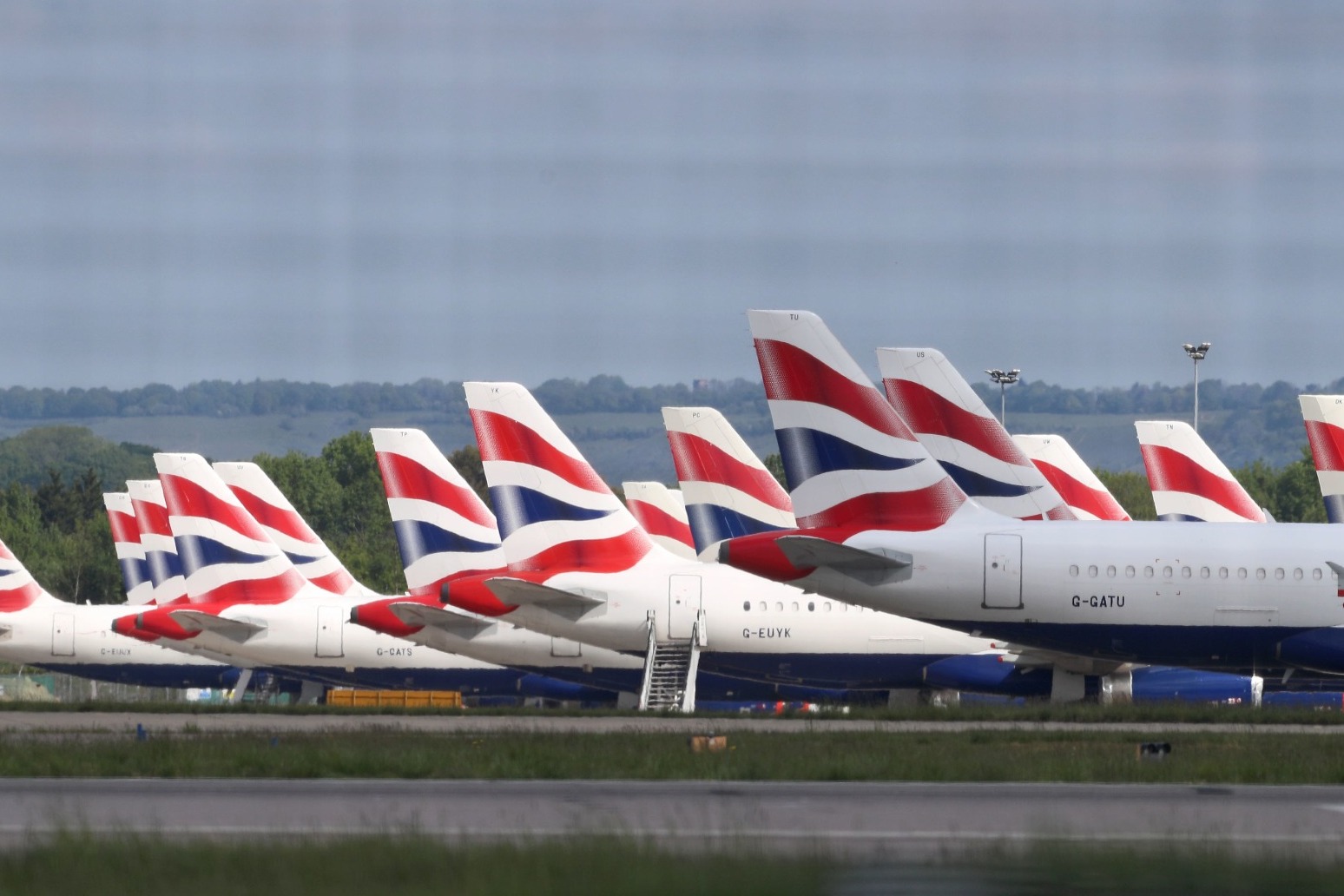
British Airways owner eyes up potential relaunch at 50% capacity from July
British Airways and Aer Lingus owner International Consolidated Airlines Group (IAG) has revealed the scale of carnage caused to the airline industry due to the coronavirus pandemic. In a series of cost-cutting measures, bosses tentatively said flights could resume at 50% capacity by July but added the group was burning through cash and does not expect to return to full capacity until 2023.
The company said Covid-19 was having a "devastating impact on the global airline and travel sectors, with the spread of the virus worldwide, resulting in lockdowns and travel restrictions and advisories, particularly from late February 2020 onwards."
Due to the restrictions, passenger capacity fell 94% from late March, with most aircraft grounded, or operating a reduced service for repatriation and cargo-only flights.
Bosses insisted, when going into the crisis, the firm has a strong balance sheet with 10 billion euros (£8.7 billion) available. IAG's Spanish airlines, including Iberia, secured a commercial loan with backing from the country's government.
IAG has also dipped into the Bank of England's loan scheme for British Airways for £300 million, although this has not stopped the firm announcing plans for 12,000 redundancies.
To reduce spending, day-to-day cash costs were cut from 440 million euros (£384 million) per week to 200 million euros per week.
The firm added it is planning a "meaningful return" to service in July with capacity of 50% in 2020, although the company added: "These plans are highly uncertain and subject to the easing of lockdowns and travel restrictions".
However, passenger demand will not recover to pre-crisis levels until 2023, it predicted, leading to 68 planes due for delivery now likely to be deferred.
In the three months to March 31, IAG said capacity was down 10.5% compared with 2019, with a first quarter operating loss before one-off costs of 535 million euros (£467 million).
There was a one-off charge in the quarter of 1.3 billion euros (£1.1 billion) to untangle complicated hedges on fuel and currency exchange costs.
Willie Walsh, IAG chief executive, said: "The operating result up to the end of February was in line with a year ago. However, March's performance was severely affected by government travel restrictions due to the rapid spread of Covid-19 which significantly impacted demand."
He added: "We are planning for a meaningful return to service in July 2020 at the earliest, depending on the easing of lockdowns and travel restrictions around the world.
"We will adapt our operating procedures to ensure our customers and our people are properly protected in this new environment. "
"However, we do not expect passenger demand to recover to the level of 2019 before 2023 at the earliest. This means group-wide restructuring is essential in order to get through the crisis and preserve an adequate level of liquidity. We intend to come out of the crisis as a stronger group."
Mr Walsh gave his backing for temperature screening of passengers at airports, after Heathrow announced on Wednesday that it will trial the measure.
He said: "We believe that temperature checks on departure and on arrival, that's an appropriate measure and we do support it.
"We also support the mandatory use of face coverings, and that I expect to be required on a European-wide basis."
He confirmed his delayed retirement will now take place on September 24, with Iberia boss Luis Gallego taking over then.
The news comes just weeks after British Airways said it was set to make up to 12,000 workers redundant.
The airline, which employs 42,000 people, has suffered from the global collapse in passenger numbers caused by the coronavirus pandemic.
IAG said BA will consult on a "restructuring and redundancy programme" as it is expected to take "several years" until demand for air travel returns to 2019 levels.
It added at the time: "The proposals remain subject to consultation but it is likely that they will affect most of British Airways' employees and may result in the redundancy of up to 12,000 of them."
Sir Richard Branson has warned that Virgin Atlantic will collapse unless it receives Government support, with more than 3,000 jobs set to go.
Published: by Radio NewsHub